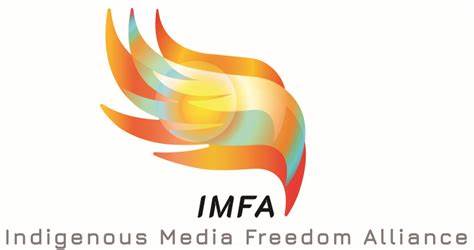IMFA board strategizes, revamps organization’s mission and vision statements
By Paula Peters
IMFA Board Member
Indigenous Media Freedom Alliance board members recently gathered for a strategic planning meeting. Chief among the core values identified during the meeting — to be Indigenous and serve the underrepresented Indigenous populations. Who better to know and understand the voice of Native people and deafness of mainstream media to it than leaders within our communities.
“The IMFA board of directors play a central role in thoughtfully guiding the organization,” said Jodi Rave Spotted Bear, IMFA founder and executive director. “This year, we hit the reset button and better defined our vision and mission statement with the guidance of our trusted directors.”
Veteran journalism professionals and educators on the IMFA board were led by board member Tim Harjo with his wealth of experience in non-profit moderation. The big takeaway for the weekend was a refined Vision and Mission:
A world where democracy thrives for Indigenous people through a free and independent press.
The Alliance improves the civil liberties of Indigenous people through research, advocacy, and nation building by employing the core values of integrity, inclusivity and transparency.
Joining Harjo, a citizen of the Fort Sill Apache, Comanche and Seminole, at the Santa Fe, New Mexico Retreat were board members Montoya Whiteman, Cheyenne and Arapaho, Paula Peters, Mashpee Wampanoag, Ruth Buffalo, Mandan-Hidatsa, Jodi Rave Spotted Bear, Mandan-Hidatsa and Minniconjou Lakota and Jamie Folsom, Choctaw.
“For an organization that is moving into its next phase of growth, the retreat was a great opportunity for us to share our sincere hopes for the future of our communities.” Said Folsom, “I came away with renewed commitment to making a free and independent press a reality for our people.”
Contemporary Indigenous communities suffer twofold from a lack of coverage in the mainstream media and stifled voices in tribal government-controlled media.
“In Tribal communities governments are historically not transparent and citizens are discouraged from speaking out, that culture has to change,” said Peters “There is no freedom of the press where voices are stifled and that lends to a lack of accountability.”
To address this IMFA will turn to the three pillars of sovereignty identified by Vine Deloria, Jr., to encouraging self-determination, protection of sacred places and spaces, and leadership in accordance with the will of the people. Getting there will require a broad dissemination of information on what is happening within their own governments and encouraging civic participation.
The board also recognized the need to identify alliances both in the journalism industry and in educational institutions where there is a need to recruit more tribal scholars for media and democracy research.


